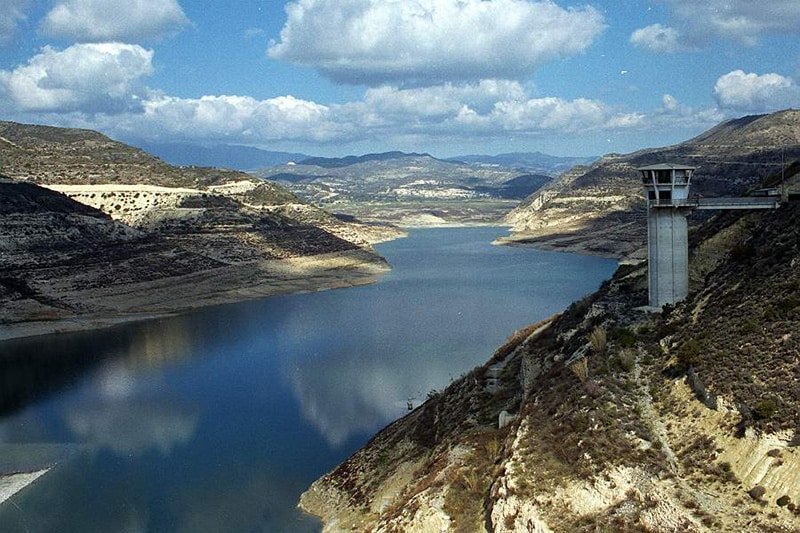Cyprus is facing an increasingly critical threat to its water resources, exacerbated by the accelerating effects of climate change, according to a new report by the Audit Office.
The report reveals that the island’s average temperature is rising at nearly double the global rate, while rainfall continues to decline — worsening an already severe water scarcity issue. Cyprus currently has just 390 cubic metres of water per person per year, well below the international threshold for extreme water stress.
What does 390 cubic metres of water look like?
- That’s 390,000 litres per person per year
- About 1,068 litres per day — but most of that isn’t for showers or drinking
- It includes not just household use, but the water used to grow your food, run factories, and maintain public spaces
For context:
- A single shower = ~60 litres
- A toilet flush = ~6–9 litres
- One Olympic swimming pool = 2.5 million litres
→ Your yearly share = 1/6 of a pool
The UN defines extreme water scarcity as less than 500 m³/person/year. Cyprus is already well below that.
Despite major investments in infrastructure- including dams, desalination plants, and wastewater treatment- the report criticises the government’s response as fragmented and reactive. Key weaknesses were found in water pricing policy, irrigation cost recovery, dam management, and the underuse of recycled water.

Key findings include:
- Desalination is now critical for drinking water but depends on energy-intensive processes with limited use of renewables.
- Infrastructure leaks and poor maintenance are leading to substantial water loss.
- Over-extraction and seawater intrusion are damaging underground reserves, while prolonged droughts are increasing agricultural demands.
- Existing national strategies and action plans suffer from delays and under-implementation.
State Auditor Andreas Papaconstantinou urged immediate, coordinated action:
“Cyprus must implement a comprehensive adaptation plan to strengthen the resilience of its water resources and safeguard future supply.”
The report concludes that without decisive action, water may become a non-renewable resource for the island- with profound consequences for its people, economy, and environment.
Also read: The UAE’s leading role in desalination – A model for Cyprus


